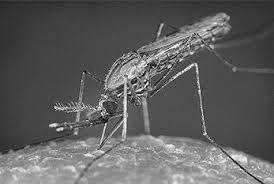 World Malaria Day was established in 2007 as a way to mobilize advocates and citizens around the world to help put a stop to the disease. This year’s theme is Invest in the future, Defeat malaria, which encourages people to help close the malaria funding gap. 2015 also marks the ten-year anniversary of the President’s Malaria Initiative (PMI). The goal of the PMI was to reduce malaria-related mortality by 50% across fifteen high-burden countries in Sub-Saharan Africa through a rapid scale-up of treatment and prevention. The PMI’s achievements include the procurement of 40 million insecticide treated mosquito nets and 48 million antimalarial treatments.
World Malaria Day was established in 2007 as a way to mobilize advocates and citizens around the world to help put a stop to the disease. This year’s theme is Invest in the future, Defeat malaria, which encourages people to help close the malaria funding gap. 2015 also marks the ten-year anniversary of the President’s Malaria Initiative (PMI). The goal of the PMI was to reduce malaria-related mortality by 50% across fifteen high-burden countries in Sub-Saharan Africa through a rapid scale-up of treatment and prevention. The PMI’s achievements include the procurement of 40 million insecticide treated mosquito nets and 48 million antimalarial treatments.
Recently, the federal government released the PMI’s strategy for 2015-2020 which is “to work with PMI-supported countries and partners to further reduce malaria deaths and substantially decrease malaria morbidity, towards the long-term goal of elimination.” NGO’s are crucial to helping achieve the PMI’s goals. Here are several Global Washington members working on the front lines of the fight to end malaria.
- Malaria No More: Malaria No More is helping to eradicate malaria by engaging leaders, rallying the public, and delivering lifesaving tools and education to families across Africa. Rallying U.S. political leaders to provide funding and to support policies that will help eliminate the disease, Malaria No More also conducts campaigns abroad that encourage citizens to take steps to protect themselves. These campaigns frequently employ local celebrities, and focus on such topics as reminding people to use their mosquito nets.
- MED25 International: Providing individuals in rural African communities with quality, culturally appropriate, and affordable health care, Med25 serves the larger Mbita District of Kenya which is home to over 118,000 residents from farming villages and fishing communities. MED25 runs a comprehensive care clinic that provides services to prevent and treat an array of diseases, including malaria. The clinic brings medicine to people who would otherwise not have access to treatment.
- Medical Teams International (MTI): MTI responds to disasters worldwide and supports long-term global health initiatives. They provide medical supplies to communities that need them most but that lack access to life-saving resources. In 2014, for example, MTI volunteers took mosquito nets to communities in Uganda and showed families how to properly hang them. Widespread use of mosquito nets help slow the spread of malaria by preventing bites from disease carrying mosquitos.
- PATH: PATH is dedicated to creating sustainable solutions that enable communities around the world to break longstanding cycles of poor health. PATH attacks malaria from all sides — treatment, prevention and elimination. To help those suffering from malaria, PATH provides a stable supply of the best malaria drugs available. PATH also supports countries in controlling the parasite with innovative methods such as new approaches to diagnose the disease, as well as provides scientific expertise to drive the development of the world’s first malaria vaccine.
- PSI: PSI focuses on a variety of interventions to improve the availability, affordability and use of effective malaria treatment. PSI supports Ministries of Health in 38 countries and is the largest distributor of insecticide-treated mosquito nets in the world. Interventions include rapid diagnostic tests and quality medicines to effectively treat the disease. PSI collaborates with national malaria control programs to develop strategies that suit each country’s needs.
- World Vision: With projects in nearly 100 countries, World Vision is dedicated to working with children, families and their communities to reach their full potential by tackling the causes of poverty and injustice. Focusing on child and maternal health, World Vision provides medicines, supplies and interventions to prevent and treat malaria. To date, 3,330,313 people have been protected from malaria by distributions of long-lasting insecticidal nets with the support of World Vision donors.
To learn more about World Malaria Day and how you can participate in events near you, visit www.worldmalariaday.org.